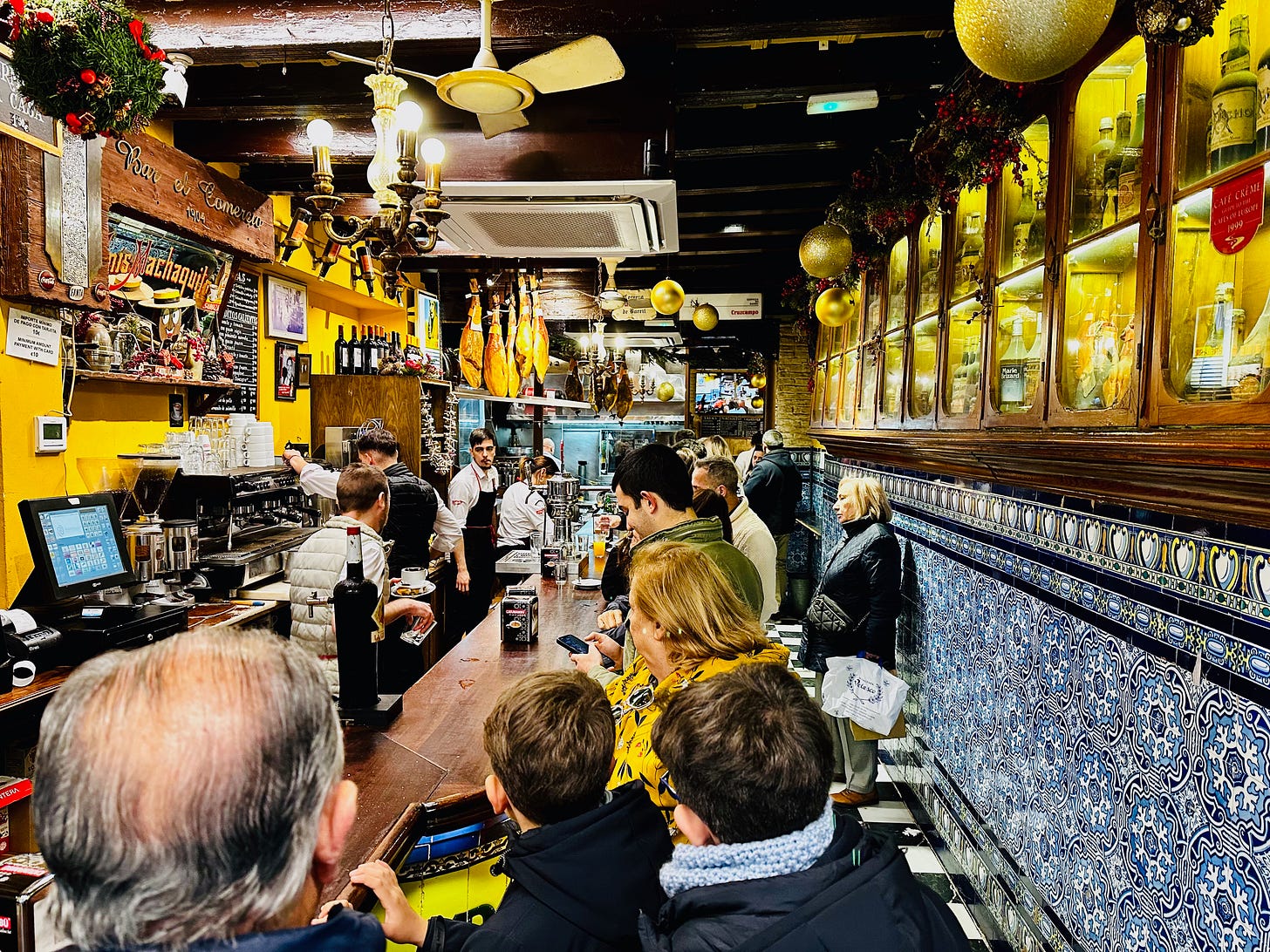Lost in the Flow: How Spain Changed My Pace of Life
From rushed routines to slow sips of vermouth, embracing a culture where the street is the destination.
In my home country, the street is just a passageway—something you cross and use to get from point A to point B. But in Spain? The street is where life happens. It took me a while to understand this. At first, I walked quickly, purposefully, weaving through groups of people standing in the middle of the sidewalk, chatting as if they had nowhere else to b…



